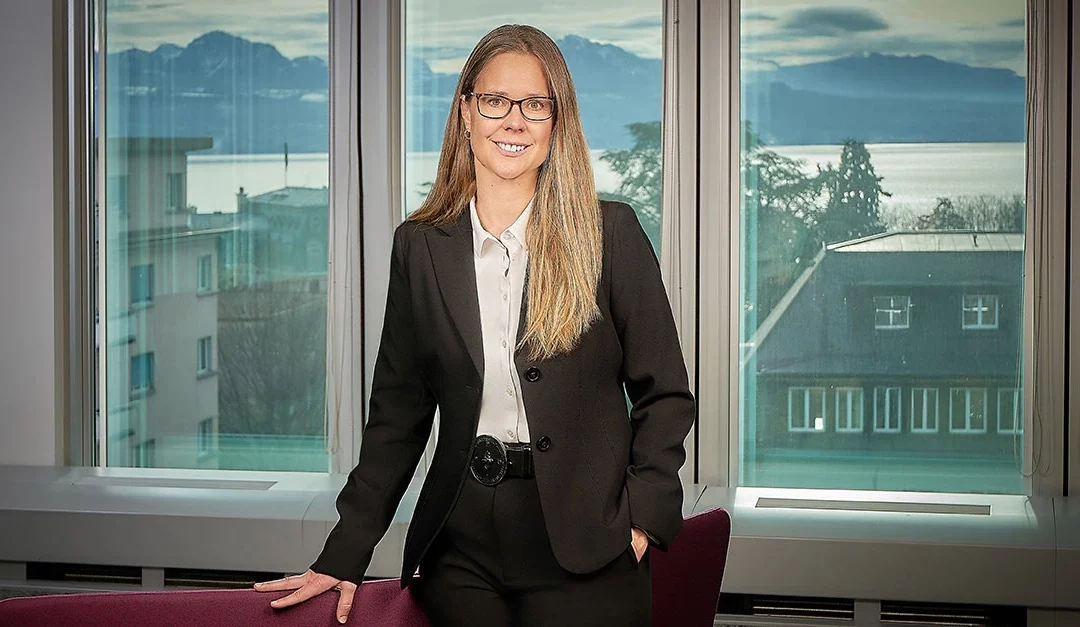How will VAT change in Switzerland in 2025?


Introduction
New VAT tax provisions came into force on 1 January 2025. These changes are designed to modernise and simplify the Swiss VAT system while strengthening the fight against tax fraud.
Here is an overview of the main changes and their implications.
I. Digitisation and internationalisation
Taxation of digital platforms
Online sales platforms are now considered to be the suppliers of the services they facilitate, obliging them to declare and pay VAT on each delivery in Switzerland. This fiction creates two successive service relationships:
- First transaction: Seller - digital platform: transaction exempt from VAT
and - Second transaction: Digital platform - customer: transaction subject to VAT if delivery in Switzerland
This fiction aims to ensure fairer competition and reduce tax evasion (foreign sellers not liable for VAT).
Obligation to provide information
At the request of the Federal Tax Administration (FTA), platforms will have to provide information on suppliers offering services subject to VAT via their platforms.
II. Simplifications for SMEs
Annual VAT statements
Small and medium-sized enterprises (SMEs) with annual sales of less than CHF 5,005,000 will be able to opt for annual VAT statements, thereby reducing the administrative burden. Instalment payments will be based on estimated previous or future tax assessments.
-
- New taxpayer The request must be made electronically via the portal provided for this purpose, no later than 60 days after the VAT number is issued. After this deadline, the changeover to the annual statement can be requested at the end of a full tax period at the earliest.
-
- Existing taxpayer : notify the FTA electronically via the portal provided for this purpose, no later than 60 days after the start of the tax period from which the change is to take place (i.e. until the end of February 2025 for retroactive application to 1 January 2025).
Berney Associés will be happy to assist you with these procedures.
III. New VAT reductions and exclusions
From 2025, the reduced rate of VAT (2.6%) will apply to menstrual hygiene products.
In addition, the following services will be excluded from VAT:
- Travel services resold by travel agencies in Switzerland or abroad.
- Participation in cultural events.
- Coordination of care as part of medical treatment.
- Provision of infrastructure for outpatient services and day hospitals.
- Home assistance by private organisations.
- Provision of staff by non-profit organisations.
- Offers investment groups within the meaning of the Swiss Federal Law on Occupational Pensions.
IV. New concept of subsidies: creation of a legal presumption
In order to make it easier to distinguish between non-taxable subsidies and taxable consideration for the recipients of the payments, a new rule has been introduced for the VAT treatment of subsidies: the creation of a legal presumption that subsidies are taxable.
- Payments expressly described as subsidies by public authorities are deemed to be subsidies for VAT purposes.
- The public authority must be able to prove to the FTA that the designation as a subsidy has been communicated to the beneficiary. The FTA therefore recommends that this designation be made in a written document (decision, contract or other), with reference to art. 18 para. 3 of the VAT Act.
- In general, grants are awarded on the basis of a law or regulation.
If the public authority does not designate a flow of funds as a subsidy, this does not necessarily mean that it should be inferred a contrario that it is a (taxable) consideration.
Under the law and in accordance with the principle of presumption, the FTA can always verify whether the flow of funds should be classified as a subsidy, a consideration, or another classification.
V. Changes to the net tax liability method (NTR) and flat rates (FR)
No more limit on the number of rates
There is no longer a limit on the number of SDLT rates a taxpayer can apply (previously limited to 2).
Condition: the activity must represent more than 10% of total sales. Regulations for mixed branches no longer exist.
Taxable persons may voluntarily deduct all their turnover from taxable services at the highest authorised net tax rate.
More limited application of the TDFN method
The SDRT method cannot be applied by electronic platforms or by taxable persons based abroad.
Introduction of the concept of subsequent relief for input tax and self-supply in the event of a change of method
In the event of a change from the effective method to the NDFT (or TF) method, the taxpayer will now have to repay to the FTA, after deducting a depreciation charge, the input tax deducted in the past (same system as in the case of a change of use under the effective method - self-supply).
In the event of a change from the NFFT (or TF) method to the effective method, by analogy with a change of use, the taxpayer will be able to claim the deduction of the non-business input tax in the past, taking into account depreciation (subsequent input tax relief).
Voluntary change of method
The deadlines for changes to the flat-rate settlement method have been reduced to one year.
A change of method backdated to 1 January 2025 is possible if the announcement is made no later than 60 days after the start of the tax period. Berney Associés will be happy to assist you.
VI. Combating fraud
Administrative measures
The FTA will be able to impose measures such as an import ban and the destruction of goods on businesses that fail to comply with their VAT obligations (particularly in relation to online platforms).
Directors' liability
Guarantees may be required from members of the management bodies of companies that have repeatedly gone bankrupt to cover tax debts.
Tax on acquisitions
Transfers of emission rights and similar certificates will be subject to acquisition tax, even for acquisitions within Switzerland.
VII. Our advice in the face of these changes
Assessing the impact on your business
Find out whether your business is affected by the new VAT obligations/provisions, particularly if you use digital platforms to sell goods or services.
Adapting accounting systems
Update your accounting management systems to take account of new requirements for annual statements, payments on account and VAT exemptions.
Analyse your options
For companies providing cultural or medical services, consider the option of VAT exemption or voluntary taxation to optimise the recovery of deductible input tax.
Monitor official publications
Follow the FCA's publications and practice updates to ensure your business is compliant with the new regulations. More information will be published in the coming weeks.
For more information and a detailed analysis of the impact of this reform on your business, please contact our tax experts.
Source :
1. You will find more details in the Berney Associés Newsletter: Taxation of digital platforms (coming soon)
Latest news

35 ans d’histoire : un anniversaire célébré au cœur de la Laponie
Pour célébrer nos 35 ans, nous avons
emmené 140 collaborateurs en Laponie pour un séjour hors du temps, riche en expériences humaines et en souvenirs inoubliables.

TVA Suisse : échéance du 28 février 2026 à ne pas manquer
Plusieurs changements TVA doivent être annoncés à l’AFC dans un délai de 60 jours après le début de l’année fiscale. Passé ce délai, leurs effets sont reportés à l’année suivante.

Véronique Pipoz devient COO du Groupe
La nomination de Véronique Pipoz au poste de Chief Operating Officer (COO) marque une nouvelle étape dans le développement du Groupe.